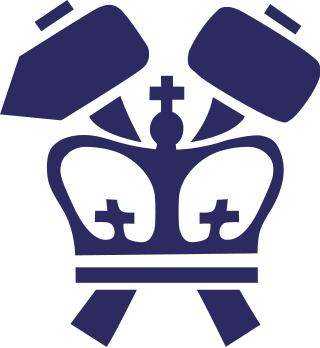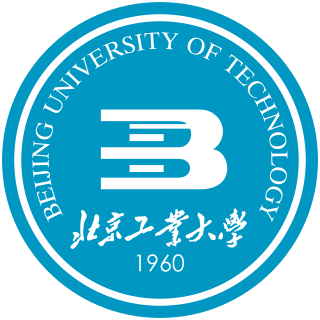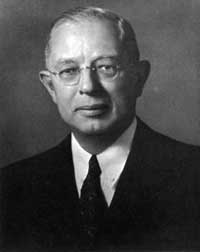
Harvey Mudd College (HMC) is a private college in Claremont, California, focused on science and engineering. It is part of the Claremont Colleges, which share adjoining campus grounds and resources. The college enrolls 902 undergraduate students as of 2021, and awards the Bachelor of Science degree. Admission to Harvey Mudd is highly competitive and the college has an intense academic culture.

The Claremont Colleges are a consortium of seven private institutions of higher education located in Claremont, California, United States. They comprise five undergraduate colleges —Pomona College, Scripps College, Claremont McKenna College (CMC), Harvey Mudd College, and Pitzer College—and two graduate schools—Claremont Graduate University (CGU) and Keck Graduate Institute (KGI). All the members except KGI have adjoining campuses, together covering roughly 1 sq mi (2.6 km2).

The New York University Tandon School of Engineering is the engineering and applied sciences school of New York University. Tandon is the second oldest private engineering and technology school in the United States. The school dates back to 1854 when its predecessor institutions, the University of the City of New York School of Civil Engineering and Architecture and the Brooklyn Collegiate and Polytechnic Institute, were founded. The school was renamed in 2015 in honor of NYU Trustees Chandrika and Ranjan Tandon following their donation of $100 million to the school.
Keck Graduate Institute (KGI) is a private graduate school in Claremont, California. Founded by Henry Riggs in 1997, it is the seventh and newest member of the Claremont Colleges.

Claremont McKenna College (CMC) is a private liberal arts college in Claremont, California. It has a curricular emphasis on government, economics, public affairs, finance, and international relations. CMC is a member of the Claremont Colleges consortium.

The Fu Foundation School of Engineering and Applied Science is the engineering and applied science school of Columbia University. It was founded as the School of Mines in 1863 and then the School of Mines, Engineering and Chemistry before becoming the School of Engineering and Applied Science. On October 1, 1997, the school was renamed in honor of Chinese businessman Z.Y. Fu, who had donated $26 million to the school.

The Summer Science Program (SSP) is an academic summer program where high school students experience college-level education and do research in celestial mechanics by studying the orbits of asteroids, biochemistry by studying the kinetic properties of enzymes, or genomics by studying antibiotic resistance. The program was established in 1959 at The Thacher School in Ojai, California. It now takes place on three astrophysics campuses, New Mexico Tech in Socorro, New Mexico, the University of North Carolina at Chapel Hill in Chapel Hill, North Carolina, and University of Colorado, Boulder in Boulder, Colorado, and two biochemistry campuses, Purdue University in West Lafayette, Indiana and Indiana University Bloomington in Bloomington, Indiana.

The Claremont Graduate University (CGU) is a private, all-graduate research university in Claremont, California. Founded in 1925, CGU is a member of the Claremont Colleges which includes five undergraduate and two graduate institutions of higher education.

The W. M. Keck Foundation is an American charitable foundation supporting scientific, engineering, and medical research in the United States. It was founded in 1954 by William Myron Keck, founder and president of Superior Oil Company. The Foundation's net assets exceeded $1.3 billion at the end of 2019.
Jon Calvert Strauss is an American academic administrator who has served as a college president at Worcester Polytechnic Institute, Harvey Mudd College, Manhattanville College, acting president of Iona University and most recently as interim president of Paul Smith's College from 2020 to 2021.

Beijing University of Technology, also called Beijing Polytechnic University or Bei Gong Da (北工大), is recognized as one of the Project 211 universities. The university has established a multidisciplinary academic structure, offering a variety of programs, and is involved in diversified research in the fields of Science, Engineering, Economics, Management, Liberal Arts, and Law. It is a Chinese state Double First Class University Plan university, as identified by the Ministry of Education.

Harvey Seeley Mudd was a mining engineer and founder, investor, and president of Cyprus Mines Corporation, a Los Angeles–based international enterprise that operated copper mines on the island of Cyprus.
The Association of Independent Technological Universities (AITU) is a group of private American engineering colleges established in 1957. The purpose of the association is to share ideas and practices that promote innovation and entrepreneurship, promote technology-oriented careers and advance post-secondary education in engineering and science.

Tunku Abdul Rahman University of Management & Technology, abbreviated TAR UMT, is a non-profit, private university in Malaysia. Named after the country's first prime minister, Tunku Abdul Rahman, the school was founded in 1969 as Tunku Abdul Rahman College by the Malaysian Chinese Association (MCA). On 2 May 2013, it officially became a university college under the name Tunku Abdul Rahman University College until 2022, which it changed its name to TAR UMT. TAR UMT is one of the largest and oldest institutions of higher learning in Malaysia with more than 270,000 students having passed through its doors.
Joseph Mayo Pettit was an engineer who became dean of the Stanford University School of Engineering from 1958 to 1972, and president of the Georgia Institute of Technology from 1972 to 1986.
Ionian Technologies Inc. was a United States Biotechnology Company focused on molecular diagnostics development for the detection of infectious diseases and biothreat agents. It was established in 2000 in Upland, California as the first spin-off company to commercialize technology developed at the Keck Graduate Institute. Since its inception Ionian has expanded its isothermal amplification technology. Ionian was acquired in July 2010 by Alere Inc.
Seeley Greenleaf Mudd, M.D. was an American physician, professor, and major philanthropist to academic institutions.

Minerva University is a private university headquartered in San Francisco, California. It was established in 2012 using $25 million in venture funding from Benchmark Capital.

The Oregon Graduate Center was a unique, private, postgraduate-only research university in Washington County, Oregon, on the west side of Portland, from 1963 to 2001. The center was renamed the Oregon Graduate Institute in 1989. The Institute merged with the Oregon Health Sciences University in 2001, and became the OGI School of Science and Engineering within the (renamed) Oregon Health & Science University. The School was discontinued in 2008 and its campus in 2014. Demolition of the campus buildings began February 2017.

James Julius Spilker Jr. was an American engineer and a consulting professor in the Aeronautics and Astronautics Department at Stanford University. He was one of the principal architects of the Global Positioning System (GPS). He was a co-founder of the space communications company Stanford Telecommunications, and was most recently executive chairman of AOSense Inc., Sunnyvale, CA.














